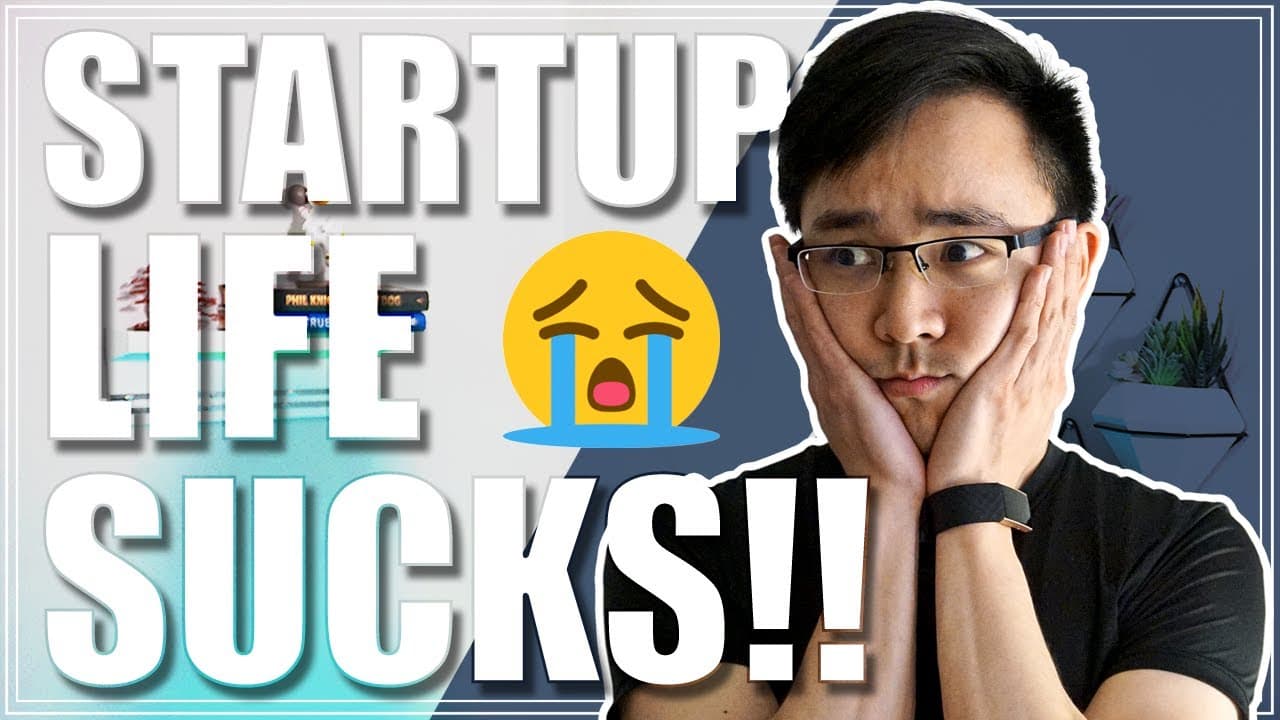My last article covered five pros to working at a startup. So it’s only fair that I also cover the flip side of the coin by sharing five cons to working at a startup. I’ve spent the last decade as a startup founder, operator, and employee. So it’s safe to say I’ve seen my fair share of good and bad when it comes to startup life.
Con 1: Mentorship is not easily available
This mostly reflects my experiences in working in smaller organizations less than a hundred people, but generally speaking, you will have to actually seek out opportunities for mentorship in places aside from work.
For me, this isn’t a huge deal because I’m a pretty independent person. And I like to learn things myself, but this might be important to you if you’re the sort of employee that likes to have a mentor or a coach figure in your workplace.
There’s a few ways that you can tell if you’re this type of person. If you really appreciate having constant coaching or mentoring on a weekly basis with somebody at work, then you might want to look for a startup that either has the resource to support you there or for a larger organization. Generally speaking from my experiences, I have noticed that smaller startups will be a little bit more stretched thin in their bandwidth. And as a result, the quality and level of mentoring and coaching that you’ll actually get from your manager might be a little bit limited.
This is a big difference when it comes to startups and larger corporations. Larger corporations have enough employees that they can essentially make sure that every single employee has a manager that can take care of them, or at least should be taking care of them. Because startups are constrained, you generally will have to find mentorship through other avenues.
The best ways that I have found this in the past is by following people on Twitter, by going to different conferences, by reading different books from people that you look up to and just finding other ways to further your growth in whatever skills that you’re trying to acquire.
Over my career, I’ve spent some time as a co-founder wearing many hats in a business, and now I lead go-to market strategy for another startup. And what I found is that this is simply a trade-off that you have to make the choice of doing if you decide to work at a startup. You’ll generally have to seek mentorship through other more unconventional avenues than the traditional ones that you might find in other workplaces.
I like to remind you though, that this is a thing where your mileage may vary. You could just have a super hands-on person that can really provide this mentorship. So just do your vetting as you evaluate whether or not the job is right for you.
Con 2: You likely won’t be optimizing for earning
This is a misconception with startups in which people generally tend to bucket large tech companies like a Facebook or a Google with the idea of a startup, but they’re technically not really startups these days.
And honestly, if you’re trying to optimize for your earnings, you’re better off working for one of those companies. Because you can actually follow their levels approach in which you will get more predictable comp increases as well as the public stock of those companies through RSUs. And so it’s actually more advantageous in most situations to just go work for a big tech company if you are optimizing for your compensation.
When it comes to joining a startup, you will generally give up some component of the base potential of your earnings in exchange for potentially some more equity. But even that equity is generally going to be worthless in the greater scheme of things. Ultimately, most startups fail, or they never actually reach a liquidity point in which your stock is actually worth anything.
Con 3: Unprofessionalism can be more condemned
I think this comes from the fact that when you’re working in a smaller organization, you will generally be working more closely with every single person in your company.
So as a result of this, people tend to let their guards down in terms of their true personalities. And as a result of that, you get both the good and the bad to that. If you happen to be working with a coworker or you have a boss that is less emotionally intelligent, or just less than kind in how they treat their other coworkers, then it’ll make it for a really bad experience for everybody else involved.
For example, I’ve had friends who have worked for tech CEOs that have had irrational expectations for them. And as a result, they’ve had experiences where they’ve actually been verbally abused by their boss, or they’ve had something in which it just scars them and really detracts from their morale when it comes to how they view their work.
I personally think that this sort of behavior should never be acceptable regardless of if you’re working at a startup or not. But I’ve noticed these stories come up a lot in the startup world. So just remember that when you tend to gravitate towards a smaller team, having one bad apple in the bunch is actually a bigger impact on you than if you were part of a larger team in which you only had one bad apple as well.
Con 4: Hazy career growth
The fourth drawback to work in a startup is that you can have hazy career growth. If you’re the sort of person that likes to go through life, knowing exactly what check boxes need to be checked off in order for you to level up to the next stage, then startups might not be for you.
Instead, I would recommend that you look for a larger company that has a more defined career path, where it’s super clear for you exactly what you need to do in order to unlock that next level of compensation or that next promotion of yours.
Overall, I found that careers and startups, especially early stage startups will tend to be windy in terms of their pathways. What I mean by this is it’ll largely come down to what the opportunities are at the organization, what your skills are and whether or not your boss is willing to give you that opportunity when the time comes. As a result of all of these factors, it can be a little unclear as to when you’re going to have your at bat opportunity for taking that next layer of responsibility or that next step in your career.
Sometimes you’ll have to take a step back from your company and your work and just assess whether or not you feel like your work is going in the right direction as to whether or not you should stay at your company, go to another startup or do something else with your career.
Con 5: “We’re like family”
In my opinion, this is one of the most toxic startup culture traits that I have noticed through the years. The notion is essentially that because startups are more collegial and friendly environments that we can treat each other like we are family.
I think that this notion is flawed. And the reason why is because it allows people to start to treat other people in a different way than how they would actually treat others in a professional environment.
It starts to blur the lines of professionalism, which leads back to that con that I shared about unprofessionalism being more condoned at startups. Personally, I’m more in favor of a clear split between your work and your life. I think that work-life integration is really important, but I’ve seen malintent in terms of how this we’re like a family mentality has been used in startups in the past.
In fact, I’ve even seen malicious uses of this sort of, we’re like a family approach in which people have been guilted to staying at a company longer than they necessarily should for their career, just because they should do it for the betterment of the team. Ultimately, it’s important to remember that business is business. So just like in pro sports, how an organization has the right to trade away players at their discretion, players should feel free to do what’s best for them at all points in time for their particular career.
Big takeaways
There are two things that I want you to remember when it comes to the cons of working at a startup:
- The first one is to be prepared to accept the trade-offs of working in a startup. When you make the choice to work at a startup, you have to understand the good and the bad behind it in order to make an educated decision for yourself
- The second big takeaway is to be aware of the cool way. There are a lot of cultural traits about the startup world. Some are good and some are bad. So just be aware of them so that you can make the assessment for yourself as to what you want to be a part of and what you don’t resonate with.
If you liked this article, be sure to check out my YouTube channel to get new videos every single week. I’ll help take you from zero to self-starter as you grow your business, get more customers, and hone your business acumen. Also, feel free to share this with anybody that you think might benefit from learning the drawbacks of working for a startup.

